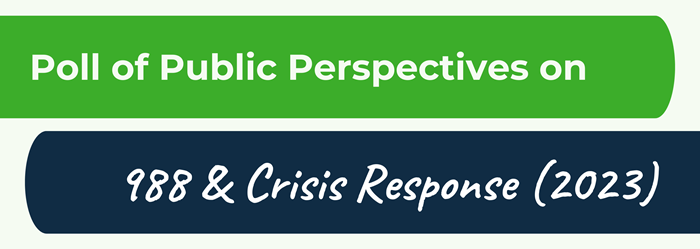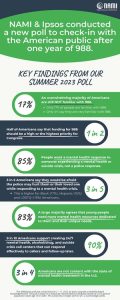
A NAMI-Ipsos poll conducted in Summer 2023 found that most Americans are not familiar with the 988 Suicide & Crisis Lifeline. Additionally, the poll found that there’s strong bipartisan support for policy solutions and funding to expand the capacity of 988 call centers and the availability of related crisis services – even when people are not personally familiar with 988 or know anyone who has contacted the 988 Lifeline. Dig into these results further with this slide deck.
Jump To Key Findings on:

Infographic: Poll of Public Perspectives on 988 & Crisis Response
NAMI HelpLine is available M-F, 10 a.m. – 10 p.m. ET. Call 800-950-6264,
text “helpline” to 62640, or chat online. In a crisis, call or text 988 (24/7).